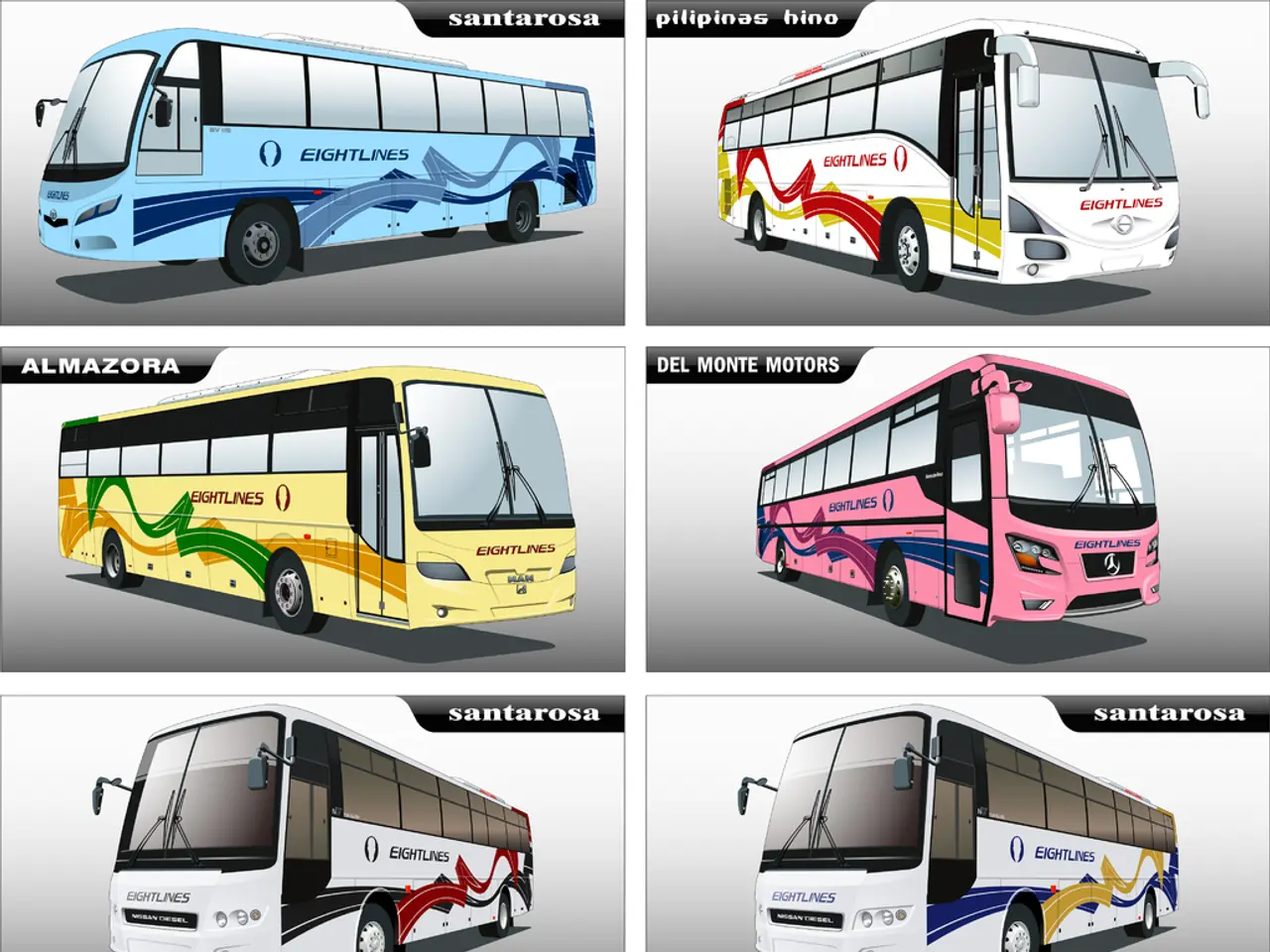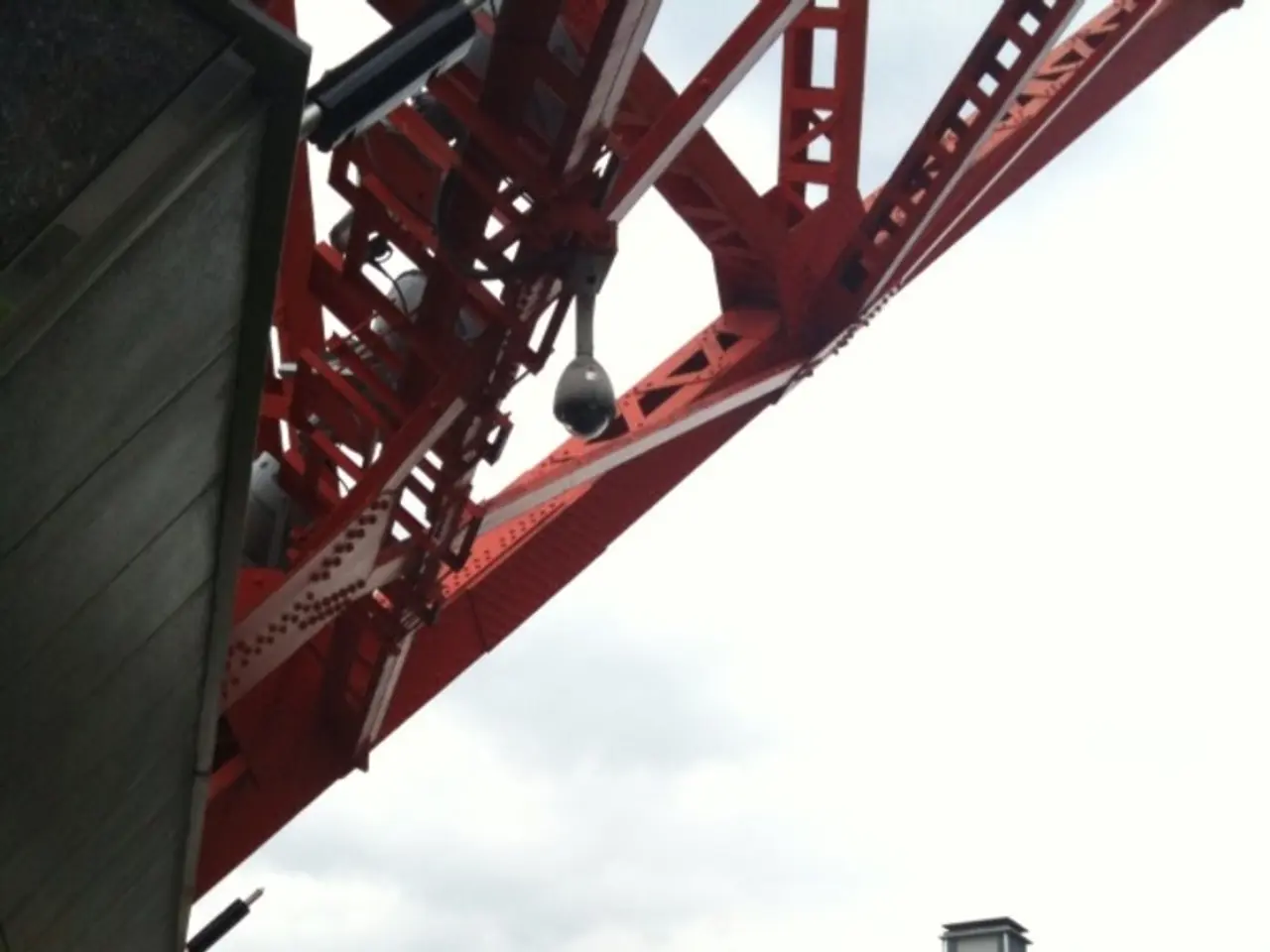Dusseldorf's Rhinebahn Transit Authority Plans for Transition to Zero-Emission Bus Fleets
Rheinbahn, a leading public transport operator in Düsseldorf, Germany, is spearheading the shift towards a greener future with significant investments in hydrogen and battery electric buses. The European-wide tender for ten hydrogen buses and 20 additional electric buses is currently underway, as the company aims to make lines 726 and 833 emission-free by mid-year.
The company's commitment to reducing CO₂ emissions in public transport is evident in its already robust hydrogen bus fleet of 20 vehicles. This fleet is backed by a state-of-the-art refuelling infrastructure, with a new hydrogen station launched in Düsseldorf in June 2025. This station, now the largest in Europe with a daily capacity of up to five tonnes of hydrogen, can refuel three vehicles simultaneously, ensuring flexible and efficient fueling for Rheinbahn’s hydrogen buses.
While specific details on Rheinbahn’s procurement of electric buses from manufacturers like Irizar were not immediately available, the general trend towards electrification of bus fleets in Germany and Europe suggests that Rheinbahn is likely to be expanding its electric bus fleet. The Irizar i3, a new battery electric bus model, entered the market in 2025.
In preparation for the arrival of the new buses, Rheinbahn has set up two temporary charging stations to keep the two surviving electric buses operational. Michael Richarz, board member for technology and operations at Rheinbahn, has already taken delivery of the first bus from the replacement order for the destroyed electric buses. This bus, also from Irizar, runs completely electrically and offers 34 seats and 27 standing places.
The new electric buses will feature leather seats, air conditioning, and accommodations for wheelchair or stroller users, as well as a folding ramp for mobility-impaired passengers. They will have a minimum range of 210 kilometers and can be fully charged in less than three hours.
In the coming months, the first ten hydrogen buses will be put into operation at Rheinbahn. The aim is to make a significant contribution to the climate goals of the city of Düsseldorf and the region by making lines 726 and 833 emission-free with all ten electric buses by mid-year.
Rheinbahn is also working on converting their infrastructure, depots, and workshops for the new technologies, setting the course for a future with emission-free drives. The investment for replacing the eight destroyed buses amounts to around 4.5 million euros. The buses will go into regular service after some weeks of testing, starting from early May.
Michael Richarz emphasised that Rheinbahn is technology-open and gaining experience with both emission-free drive technologies. The goal is to gradually convert the Rheinbahn bus fleet to emission-free drives, with a modern bus port for 60 emission-free buses being built at the Heerdt site, scheduled for completion by mid-2024.
- Rheinbahn, with its investment in hydrogen and battery electric buses, demonstrates a strong commitment towards environmental science and combating climate-change in the transportation industry.
- The company's already existing hydrogen bus fleet of 20 vehicles is supported by advanced refueling infrastructure, including a newly launched hydrogen station in Düsseldorf, capable of refueling three vehicles simultaneously.
- While specific details on Rheinbahn's procurement of electric buses from manufacturers like Irizar are not immediately available, the general trend suggests an expansion of their electric bus fleet, with the Irizar i3, a new battery electric bus model, entering the market in 2025.
- In addition to investing in hydrogen and electric buses, Rheinbahn is also focusing on implementing environmental-science practices, such as setting up charging stations for electric buses and planning the construction of a modern bus port for 60 emission-free buses, aiming for completion by mid-2024.




